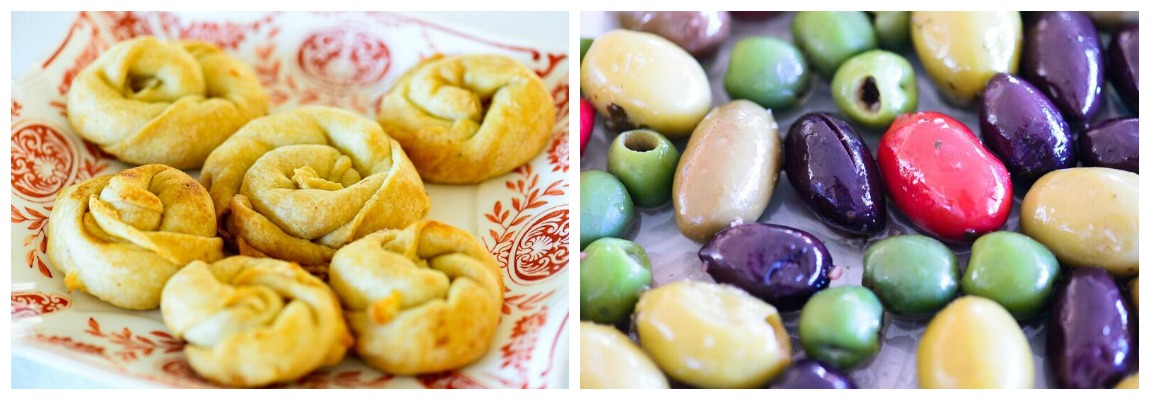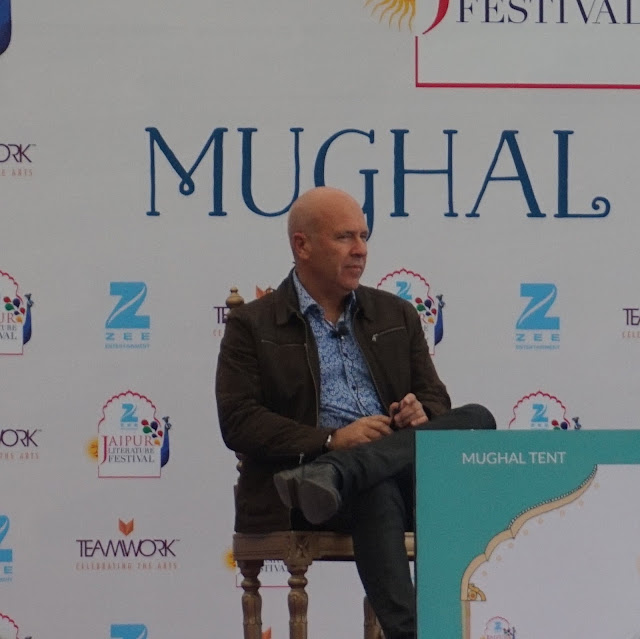Listening to Roy Foster must be one of my highlights of the Festival and this is only on the second day. The talk was entitled WB Yeats - the Arch Poet. This is what I like best, listening to an authority talking eloquently and authoritatively on their subject matter. Roy Foster has spent some 18 years studying Yeats and listening to his poetry this morning was breathtakingly beautiful, the flawless language, the rhyme, the complex set of ideas and images.

National Poet and Nobel Prize laureate he is a identified with Ireland's history and cultural life. He was a politician, a revolutionary and a theatre director who quarrelled with, and comforted his country in equal measures. He made Ireland culturally fashionable. He wrote about her struggle comparing her to a woman who needs to be liberated. We listened to "The Second Coming" a poem which resonates with the events of the 20th of January 2017. "Ireland in the coming Times" about Ireland's revolution. "The Tower" where he lived and wrote some of his best political poetry and"The Spur" written late in life with some sexual undertones. He died in the south of France but was eventually moved back to Ireland. His poetry, like nations, can be great in their complexities and contradictions but he was undoubtedly the Arch Poet of Ireland whose work is as relevant today as the day he wrote it.
The Kohinoor Diamond is the subject of William Dalrymple and Anita Anand's new book.
The Authors decided to trace the actual history of the Kohinoor, as while much is written about it, little has been proved.Theo Metcalfe's report on it is one of the only sources but little is substantiated. It has a fascinating course through history ending up in the Peacock Throne but finally being taken from there and worn on the arm by Shah Jahan and successive Maharajas ending on the arm of a sweet 10 year old boy Dilip Singh. He is eventually separated from his mother who is incarcerated and he ends up signing away the Punjab and the Kohinoor. He is raised by john Logan and becomes a Christian and visits Queen Victoria in London. The diamond which is in her hands is cut and re faceted for the Great exhibition, so much so that Dilip Singh doesnt really recognise it and hands it to Queen Victoria. But what of course is the most intriguing part of the story is the curse of the Kohinoor and how in its path it left many dead or dying...
Barry Cunliffe 's book "By Steppe Desert and Ocean" was a fascinating romp through 10,000 years of history showing us with maps and facts the birth of Eurasia and the start of our globalised world.
The start of agriculture in the Fertile Crescent to the production of market produce in the nearby areas. The Steppes, the open grasslands were where the horse was first domesticated and this allowed the movement of populations, with the development of paths and passages which we know as the Silk road linking East and West. In the deserts it was the commodities that were traded.The larger than life statue of Genghis Khan and the reach of his empire. Cunliffe has studied the movement of populations seemingly always East to West. One reason may be the wetter more lush weather which affects the grasslands, another might be a fascination for where the sun sets. I liked that idea.

A. N. Wilson and Shrabani Basu had the best conversation about Queen Victoria - her real character and not the stern public figure that her children painted of her. She was remarkably liberal, non racist, empathic person of high intelligence who loved to laugh and explore the exotic. Instead the image most of us have is of a woman in black with an unattractive bonnet and the saying she is probably most famous for "We are not amused." Shrabani has written a book well worth reading about Victoria and her Indian Servant Abdul Karim. A.N Wilson is an authority on the Victorians. The amount of interesting information that the speakers imparted on the Queen's relationship with the handsome and tall Abdul was captivating. He travelled everywhere with her and taught her Urdu. There is evidence of her learning Urdu in her notebooks over 13 years, the most endearing of phrases found there was "hold me tight". Victoria loved India, though never visited. The politicians were concerned she might say things which were politically incorrect, showing huge sympathy for the de- franchised Indian princes and royal families. The book will be made into a film to come out in September of 2017 - part of it will be the corridor in Osborne house where Victoria lived with all the portraits she commissioned - Abdul Karim is there in his handsome splendour. She was very close to him and often travelled with him to the south of France and insisted that they newspapers acknowledged his presence. He came into her life quite late and he relieved the loneliness she felt after losing Albert so young. Her family however were very dismissive of this relationship and the day after she was buried Abdul Karim was asked to hand over the copious letter she had written to him and they were all burnt. He was eventually deported.

The day ended with an incredible panel discussion called "The Unravelling" High hopes and missed opportunities in Iraq.The almost unbelievable account of Emma Sky - a British Council official who decided to apply as a volunteer to help Iraqis gain back control of their country after the invasion. Her extraordinary journey on a mere phone call to the war torn area where with minimal briefing and training she was put in charge of the the whole of Kirkuk. How she eventually travelled to Baghdad and became a political adviser to the American General of the occupying army. Her story read like a script but it was chillingly true and revealed the huge deceptions and misleading information which led to the war and its aftermath and of course, as recounted by Ambassador Hardeep Singh Puri who wrote a book called "Perilous Interventions", to the damage the invasion did to the region as well as it being the cause for the creation of ISIS and its aftermath. All the panelists spoke to the massive failures of this exercise and how even today we might say that Trump is not an unconnected consequence of these errors in the Bush, Blair eras.Western Intervention which was unplanned, based on erroneous facts and so damaging to populations, trust and alliances.




















































